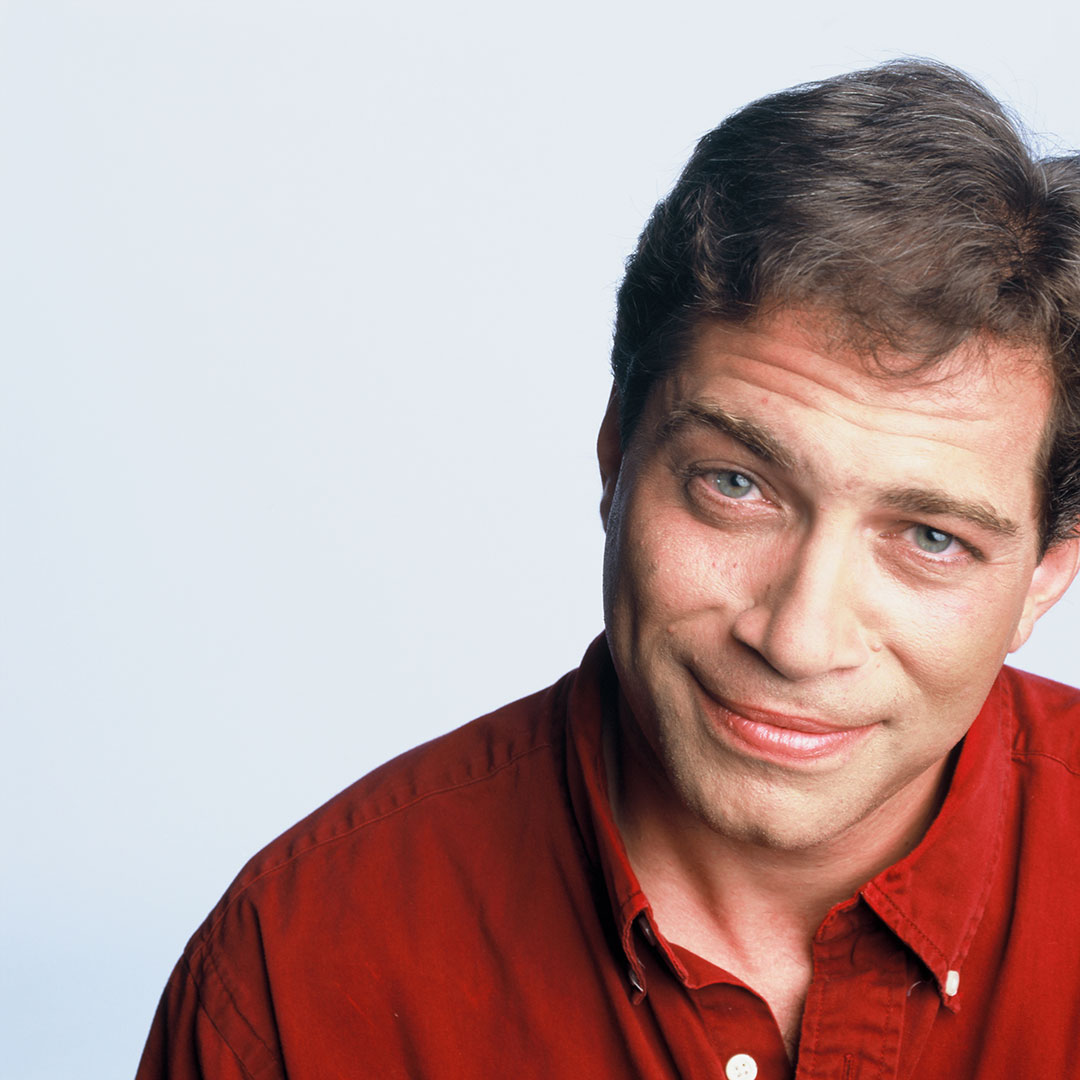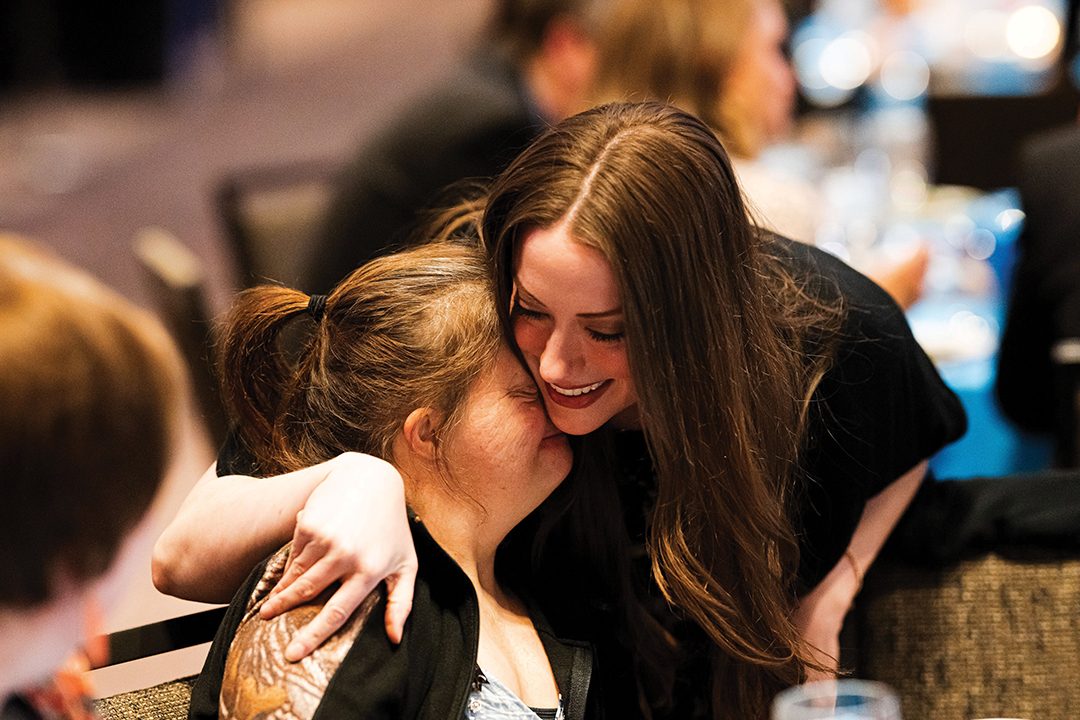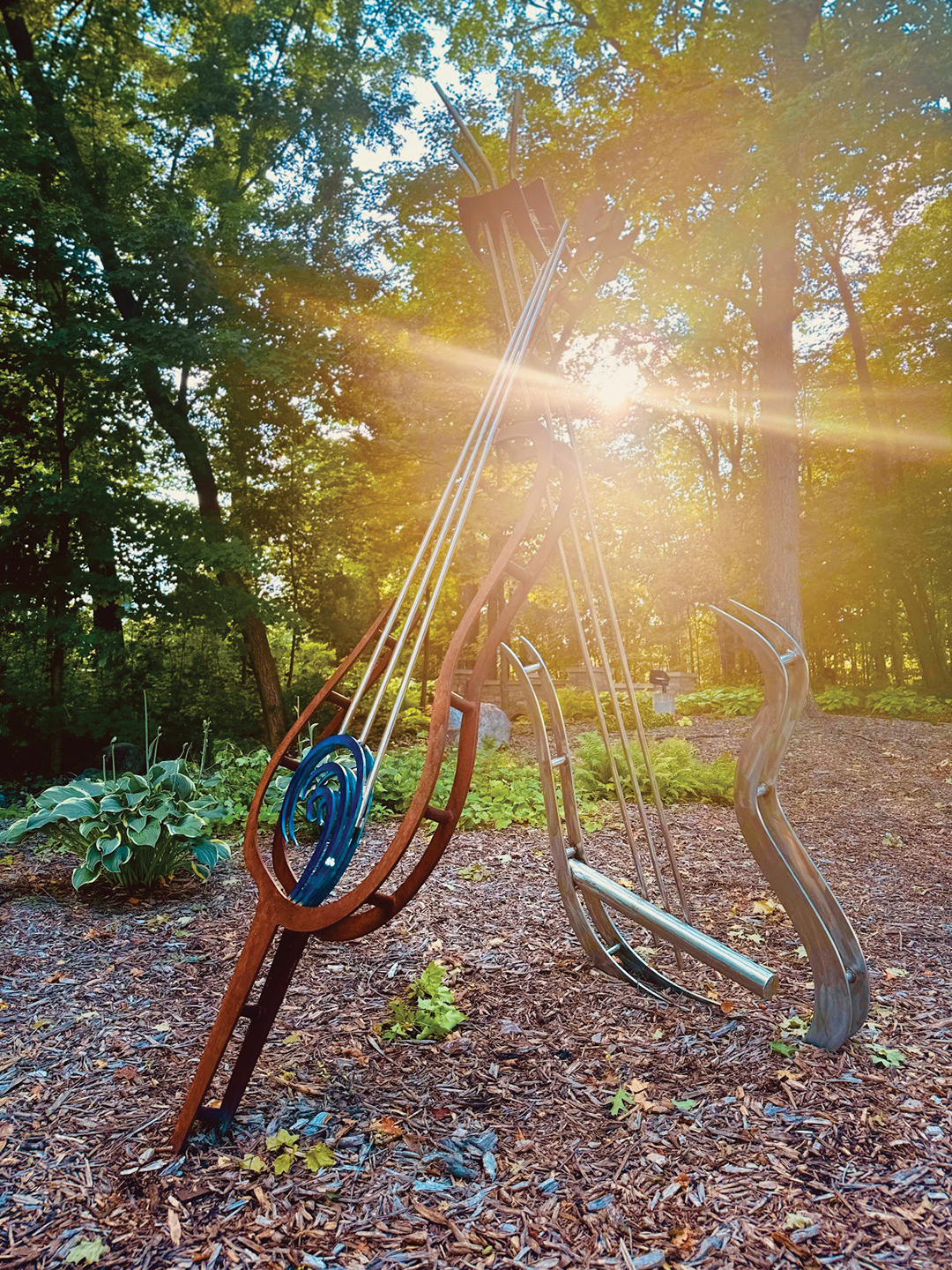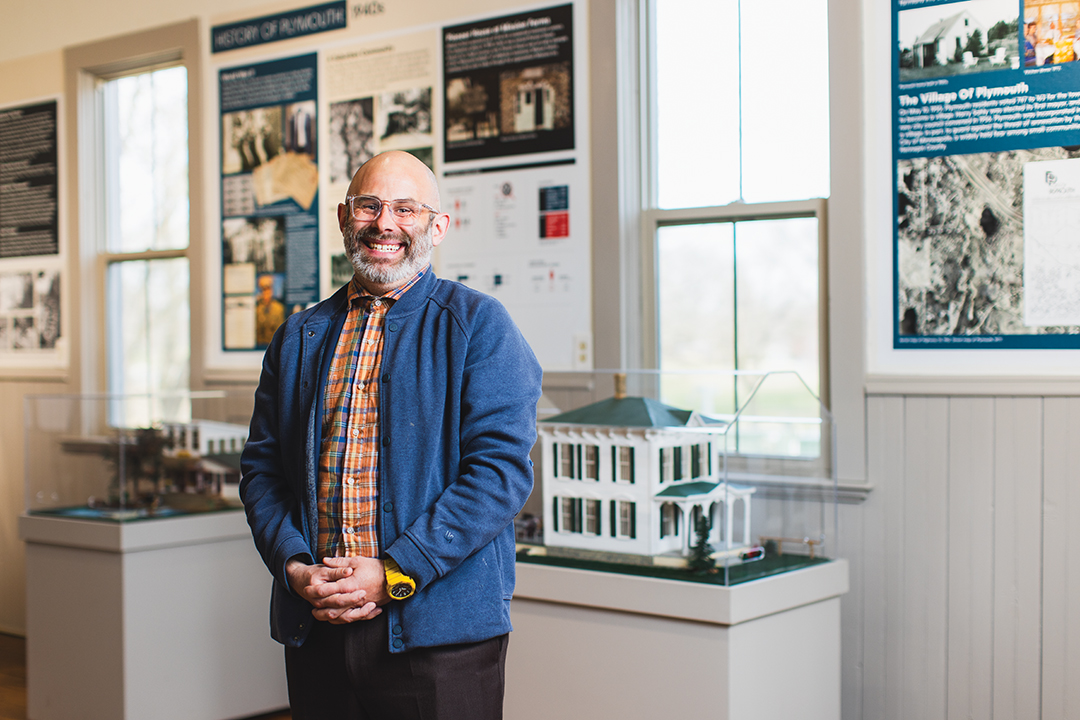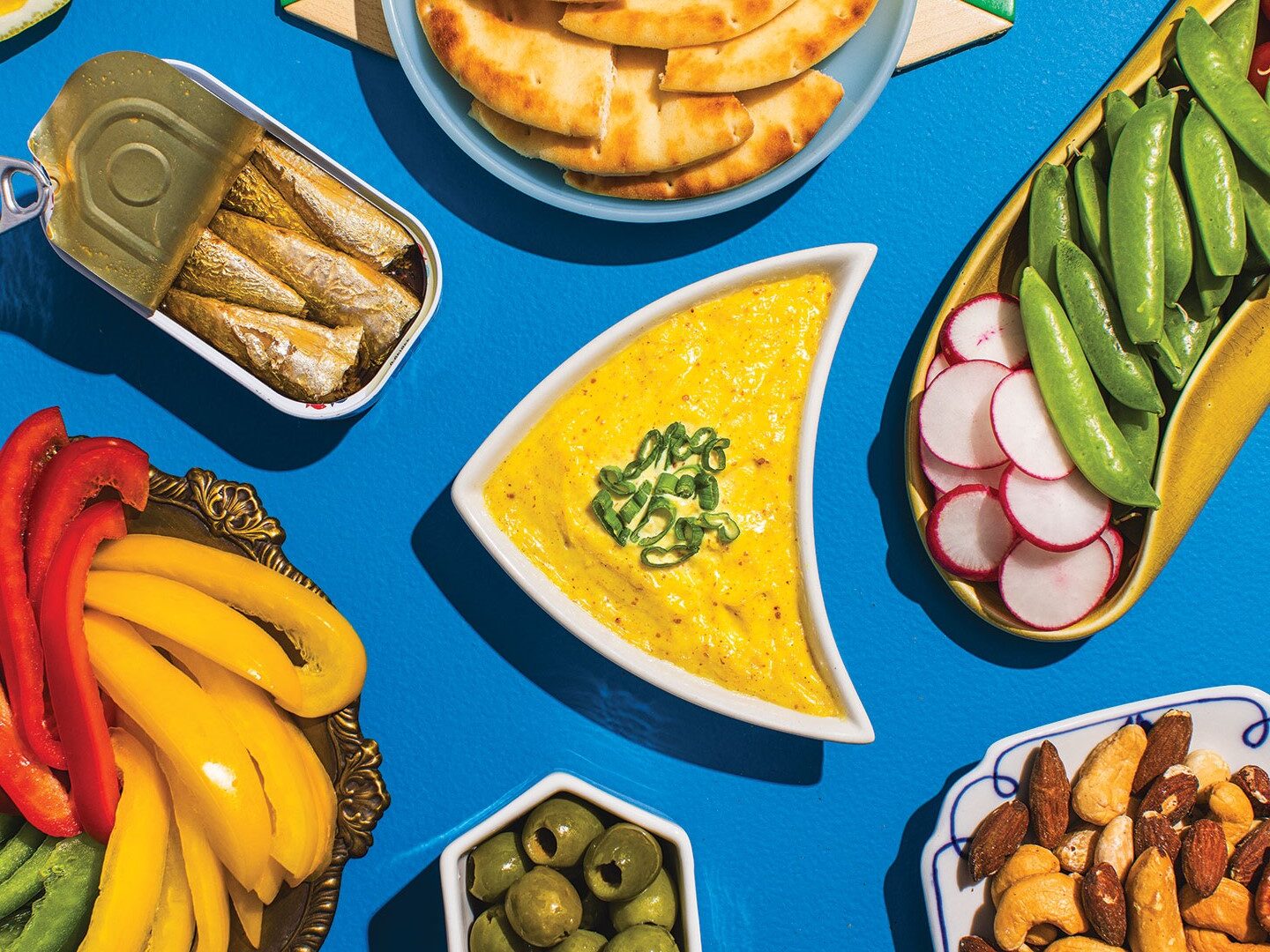
Photo: Amanda Gahler
Radio personality and fantasy sports entrepreneur Paul Charchian digs his digs in our hometown.
A Vikings fan just like his dad, Plymouth resident Paul Charchian always has been interested in football—though he only made it as far as backyard ball with his friends. Still, Charchian hosted his first fantasy draft in 1980 in the Eden Prairie Central Middle School cafeteria. This would prove to be a fateful pastime, as years later, noticing the severe lack of fantasy football advice in the market in 1993, he started up fanball.com to offer just that. He has since sold the company and become ingrained in his current venture, offering “simplicity to the madness of entry fee collection” for office pools at LeagueSafe.com.
A radio personality on local sports talk station 100.3 (KFAN) The Fan, Charchian reports on national and local sports of both the fantasy and non-fantasy variety (he moonlights as a color analyst on Fox 9’s post-Vikings coverage during the football season. He also talks about his dual passion, videogames, on his radio show Videogame Weekly, which is five years in the running.
Charchian moved to a Plymouth apartment in the mid-1990s and in 2000 put down roots as a homeowner in the Windermere Farms neighborhood where he continues to reside. His daughter, Audrey, at 7, already has her own opinion of Plymouth. “I like that it can get cold in the winter, and hot in the summer,” she says. “There are a lot of flowers all over Plymouth. There are nice gardens all over, and nature trails with flowers. I like to go to French Park and play in the nets.”
After Charchian made the jump to Plymouth, it was natural for several of his co-workers to follow suit, and not only to stay close to the office. Christian Peterson, Charchian’s director of operations for LeagueSafe.com moved from St. Louis Park about four years ago with his wife. “Our primary motivation for moving to Plymouth was the reputation of the schools and the community,” Peterson says.
This month, as an extension of our “I Am Plymouth” series, Charchian shares why the Plymouth life is the good life.
Plymouth Magazine: In a nutshell: Why Plymouth?
Charchian: There were a lot of things I really liked about Plymouth, including a lot of green space. It has never felt congested to me. Plymouth is a clean city—it’s always seemed well-managed and well-run to me, and it has great schools, both public and private. [Daughter Audrey goes to Providence Academy.] Plymouth feels very comfortable to me.
PM: What is your favorite pastime in town?
C: I’m a runner, so I think I’ve run through most of the streets of Plymouth. When I think of things that I do in town, other than eating a lot, there’s a lot of pavement pounding that has happened in the 7-mile radius around my house in the past 10 years.
PM: What are our city’s best restaurants, as far as you’re concerned?
C: My favorite fast-service restaurant is SmashBurger; my favorite family restaurant is Buffalo Wild Wings; and my favorite family-owned restaurant is Latuff’s. You have a decent chance of finding me at one of those three places in any given week.
PM: Since you’ve been living in Plymouth, has it changed much?
C: The western edge of Plymouth has grown a lot. That’s where I bought new, and it continues to see a lot of new housing. But the biggest thing is how many more shops and commercial opportunities there are. It’s great having the Target in Medina (virtually in Plymouth). It becomes extremely convenient to get almost everything you need. [If ] Best Buy comes to Plymouth, then I’m completely set—I’ll never have to go anywhere else.
PM: With all the new retail, is there a best shopping center around?
C: That’s one of the few downsides that Plymouth has, I guess: It doesn’t have a mall of any kind, and that doesn’t bother me whatsoever, but I am forced to go to Maple Grove from time to time.
PM: Which park does your daughter Audrey like?
C: We actually have several. One is just a neighborhood park with a playground and a swimming pool, but we go to French Park frequently. It has a crazy, crazy jungle gym set up there.
PM: Why is Plymouth a great place to raise a family?
C: For anybody who’s raising children, I don’t know why you wouldn’t want to put your child in a position to have one of the best schools in the state in your neighborhood and have an extremely safe city and have all of the opportunities for park and recreation that Plymouth has.
PM: What is your preferred method of getting the news? Of reporting it?
C: I am almost entirely an online news gatherer. I grew up in traditional media, but you simply can’t beat electronified news these days, especially Twitter. In the world of fantasy sports, casual onlookers might not realize just how important timing really is. Being the first to know things in your league can be a strategic advantage. I follow Twitter very closely and, of course, my preferred method of disseminating information is on radio, on KFAN. It’s amazing how much preparation has changed—it’s been 20 years [at KFAN] now. In the old days, you could open up the Star Tribune and read a few things to get yourself caught up and feel like you could do a show, but now you better be ready to change your entire show at the drop of a hat based on breaking news, because the whole world has immediate access to it, and you can’t be lagging behind.
PM: What is your future in Plymouth looking like today?
C: I have no intention of leaving Plymouth. If for some reason my house burned down, I would build on the same spot.
PM: When did you become interested in football?
C: Watching football was a way to spend time with my dad on weekends. He loves football, so I was on the couch hanging out with my dad growing up and became, for better or worse, a Vikings fan, which I remain to this day.
PM: When did you become interested in fantasy football?
C: My 74-year old dad never did get interested, but for my first draft in 1980 we just drafted players off the top of our heads. This was long before there were cheat sheets or anything else. I didn’t know any better, so I think I took a rookie quarterback named Phil Sims as my very first pick, who did absolutely nothing for my team. I don’t remember how I did, but I probably did quite poorly.
PM: What did you want to be when you were in elementary school?
C: A judge.
PM: So not a journalist—or a football player?
C: No, I didn’t think any of that would ever come to be. It’s not like judges are common, either, but that’s what I wanted to be when I was a kid. Later on I had some light interest in journalism, and I went to the University of Minnesota’s journalism school. I did not have an area of emphasis, although I was primarily interested in radio.
PM: What was your favorite school subject?
C: Initially I was floundering at the U; I wasn’t sure what I wanted to do, and my coursework wasn’t gratifying. I decided that one quarter I was going to take nothing but coursework in the areas I thought I’d enjoy. I took a military history class, an ancient Chinese history class and a journalism class. Out of the group I really enjoyed the journalism class and decided to reorient my graduation plans towards that. It ended up being ultimately really worthwhile, because I got to figure out an area that I truly enjoyed.
PM: You got to actually use your degree to work towards your profession.
C: Yeah, at the time I didn’t think I was going to end up using my journalism degree or that I was going to have a career in journalism, but I thought I’d be in computers, which is what I was doing at the time. I was a computer trainer. I was training my way through college. I thought [journalism] was kind of going to be a degree to have a degree.
PM: Did you ever play football, or was it all just watching on TV with your dad and fantasy football?
C: No, it was just backyard, but I played backyard football all the time.
PM: Did you ever play that videogame, Backyard Football?
C: I certainly played plenty of videogames growing up; thankfully we had Intellevision and we had an Apple II, so we had some chances to play those early videogames.
PM: How did you enter the fantasy sports industry as your profession?
C: In 1993—I had been playing for several years at that point and, with Rob Phythian, was bemoaning the fact that there was no fantasy football advice anywhere. This is pre-Internet, of course. Once the NFL draft was over in April, there would be a couple of books and a couple of magazines printed over the summer, and then [after the fantasy drafts in August] you’re completely on your own. There was literally not a word published. So we started a weekly magazine for fantasy football—the origins of Fanball. That ended up propelling us into a career in fantasy sports that eventually went almost entirely online.
PM: Do you cover multiple fantasy sports?
C: Fanball ended up covering every fantasy sport. We started out as a football-specific company and eventually grew to support all fantasy sports. M: Is there a fantasy sport for every sport? P: Yes, and there is crazy non-professional sports stuff like fantasy American Idol and fantasy bocce ball.
PM: Do you cover non-fantasy sports, too?
C: Yep, that’s through KFAN, where we talk about national and local sports of non-fantasy variety. We also have a fantasy football radio show from August through December.
PM: Although still early, what is your best pick for this year’s fantasy football team?
C: Adrian Peterson will be the first player taken in 90 percent of fantasy drafts. He just posted the best season by a running back in the history of the NFL, in my personal estimation, and he did it off of a bad knee. He will come into next year healthy and running behind an offense that should be at least as competent as last year’s.
PM: You are currently running LeagueSafe out of Plymouth?
C: Our headquarters are here, but our user base is national. LeagueSafe is like Paypal for fantasy sports. It is an online entry-fee payment service. We simplify the entry-fee part of fantasy sports and office pools, so people aren’t tracking down checks and cash and mailing each other cash, checks, IOUs and all the nagging of your friends that goes with trying to get them to pay up. We collect a league balance, and at the end of the year, each league directs us as to where the funds should go (who won what), and we pay it all back.
PM: You had computer skills from college. Did you build the [former Fanball and LeagueSafe] websites yourself?
C: I am not a programmer; fortunately, I have been blessed to work with some pretty good ones. My part of it tends to be more design and figuring out what to do and how to get it done.
PM: Now a little bit about your interest in videogames. Have you always been interested?
C: Yes, I am a male, so I am interested in videogames and have been since the early days. We had Pong at my house.
PM: Was that your first game?
C: Yeah, my first videogame at home was Pong, and it had the “hockey” option, which added a couple more lines on either side of the screen. I think that was on the Magnavox Odyssey.
PM: Speaking of consoles, which is your favorite?
C: It’s pretty hard to beat Xbox, because the Xbox was really the first to get online play done right, and it’s turned into so much more than just a game console. I’m running Netflix on it and Hulu and watching HBO. It does so many things now.
PM: What is your favorite videogame franchise?
C: Probably Civilization, which is now up through Civilization V. I put more hours into that series than any other, and it’s not close. That’s my desert island game. It’s the ultimate replay-ability game. It’s never the same twice, and it can scale up to become incredibly challenging. It’s never failed to intrigue me, and they’ve done a fantastic job with the whole series.
PM: I know that game doesn’t really have any particular heroes. What would your favorite hero be, or which game character would you identify best with?
C: That is a good question; I really don’t have a stock answer for that. I have a favorite videogame villain. It is a computer AI (artificial intelligence robot)in a game called System Shock 2. The computer’s name is Shodan, and they did such a good job with the story telling with this computer. It starts out being your ally, and then you find out it’s actually evil, and it’s been leading you around the ship—and you end up doing its bidding, and you ultimately have to go to war to stop the AI. It’s great.
PM: Could you see Shodan living in Plymouth making innocent Plymouthites do its bidding?
C: I’m happy to say that there is nothing terribly Shodan-like in Plymouth. It is not a place he would want to live, I don’t think. If we had to deal with a sentient evil AI running the town, I don’t believe our mayor would represent any of those values.
PM: How long have you been practicing videogame journalism?
C: Our show, Videogames Weekly, is now in its fifth year. It’s the only over-the-air videogame radio show. There’s a million podcasts for it, thousands of guys in their basements talking about videogames, but we’re the only people doing it over the air. It is with my co-host from Game Informer Magazine, Matt Helgeson, and Game Informer is by circulation one of the top 10 monthlies in America.
PM: Do you and Helgeson interview third parties on your radio show?
C: Yes, we usually talk with Game Informer’s experts about new games that have come out in the past month.
PM: Do you ever speak with anybody local?
C: Every now and again, yes, but not on a regular basis. There are not a lot of developers in town.
PM: Who would win in a fight: Master Chief from Halo or Samus from Metroid?
C: Master Chief can’t roll himself into a ball and run around, but his level of bad-assery is pretty hard to touch, and from gunplay to sky jumping out of airborne vehicles and stuff and, you know, if it was me, I would rather play Master Chief, and if I had to back one of them in a fight I would take the chief, assuming he’s armed.
PM: Is living in Plymouth also advantageous for work?
C: I think this is a bit of a testament to Plymouth. When we officed here, I was the only one living in Plymouth. Since then, other employees have decided that they want to move to Plymouth, not just to be close to work, but having spent enough time here they decided that they wanted to come and live in Plymouth. So we’ve had employees turn around and move and buy out in Plymouth after spending time here and getting acclimated to it.
PM: What is your preferred method of getting the news? Reporting the news?
C: I am almost entirely an online news gatherer. I grew up in traditional media, but you simply can’t beat electronified news these days, especially Twitter. In the world of fantasy sports, casual onlookers might not realize that fantasy sports timing is really important, and being the first to know things in the league can be a strategic advantage. I follow Twitter very closely and, of course, my preferred method of disseminating it is on radio on KFAN. It’s amazing how much preparation has changed in my years on KFAN—now it’s been 20 years. In the old days, you could open up the Star Tribune and read a few things to get yourself caught up and feel like you could do a show, but now you better be ready to change your entire show at the drop of a hat based on breaking news, because the whole world has immediate access to it, and you can’t be lagging behind.
PM: How do you overcome setbacks?
C: Like anybody, you identify your weaknesses. In my case, with my company, I surround myself with people that fill in the holes that I have. For example, I am much more of a big-picture, visionary person and am better at figuring out what I want at the end of the day. I have people that can manage my projects and get them to the finish line for me that can do all the detail work on a day-to-day basis.
PM: What are you a natural at?
C: Conversing and stirring up controversy. For the most part, and to the credit of KFAN, they really in no way have ever censored me in what I can and can’t say, including about teams in which they are deeply financially invested. They don’t in any way stop us from saying what we want to say when we dabble into politics and other potentially controversial subjects. We always have had an open microphone to say what we want to say. That means sometimes you hang yourself, but that’s OK; I enjoy stirring up a little controversy and being true to my own opinions.&Five Things You Should Know about Paul Charchian 1. In June, Charchian was inducted into the Fantasy Sports Hall of Fame. 2. Going off of his personal interests, military and Chinese history were college courses that he enjoyed – it was his journalism classes that shaped his career. 3. He was at one time a computer trainer—back when that job was still viable. 4. Civilization V is his favorite video game for replay-ability. 5. He considers himself a natural at conversing and stirring up controversy.







